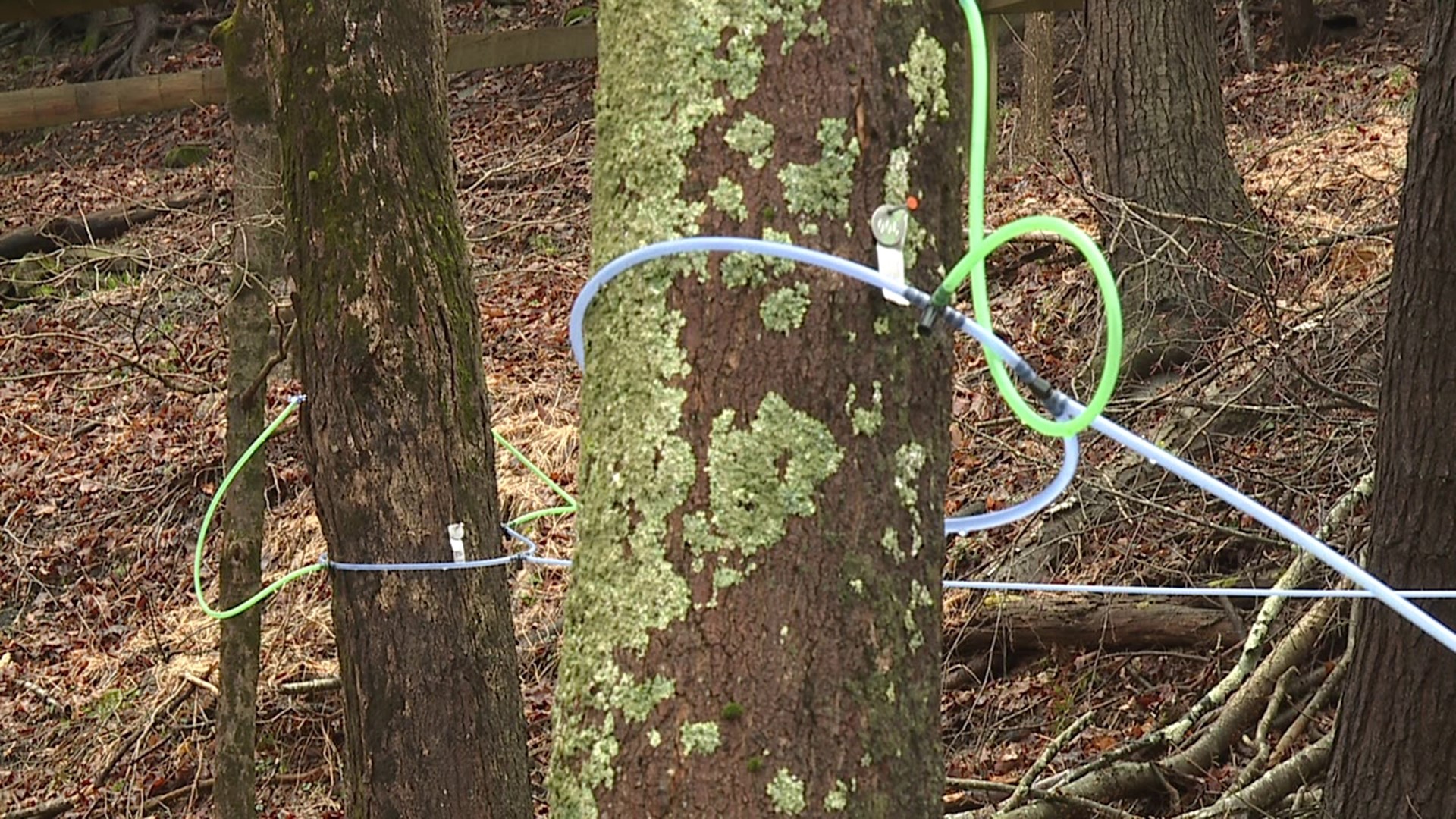LA PLUME, Pa. — Environmental students at Keystone College say once you tap your first tree, it sort of becomes an obsession, and they certainly have a passion for it. It is long days and even longer nights, and it is entirely reliant on the weather, something they cannot control.
"So as climate continues to warm, it is affecting us. It's going to affect maple trees, sugar maple trees, and this whole production," said Woodlands Campus Director Kelley Stewart, Keystone College.
The Sugar Shack on the college's Woodlands Campus and the tree tapping program there is one of only three like it in Pennsylvania. Newswatch 16 has been here for the start of tree-tapping season in the past, usually sometime in February.
This year, we were there for the end of it.
"Right now, the sap is not flowing. All of the sap has been relocated to the tops of the branches to those buds, so our season is over—it's over really early this year," Stewart said.
So that means untapping more than 200 maple and ash trees, and environmental students in the program showed us how to do it.
The maple sugaring program at Keystone College is almost entirely student-run.
"The weather was just really warm at night. For maple sugaring, you need cold nights and warm days, and it was kind of like the opposite going on for a little bit. And so we weren't really having as much sap flow as we would have liked," said Wildlife Biology graduate student Abigail Hayford.
Hayford says about two weeks ago, there was a really good three-day stretch of weather, though, so that meant all hands on deck and even some students sleeping—or not sleeping—at the Sugar Shack.
"When I say the boiler did not stop for 3 days straight, I mean it. We did 4 a.m. shifts, we did 3 a.m. shifts," Hayford said.
Students at Keystone say they are finishing the season with about 50 gallons of syrup, but they usually get around 65 gallons. Stewart says shorter seasons and less sap are likely something they should get used to.
"We have this basic idea of when we'll begin to tap and when the season will end, but really we don't know. So probably the way the weather trends are going, we're looking at tapping probably earlier in the season, probably earlier in January and expecting maybe a shorter season unfortunately," Stewart explained.
The 50 gallons of syrup are currently being bottled and students will bring the bottles to tabling events and really anywhere they go to show off the program over the next year.
Check out more news, weather and sports stories on WNEP's YouTube channel.

